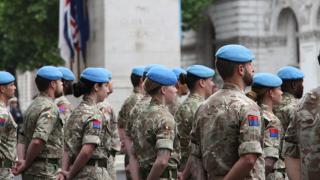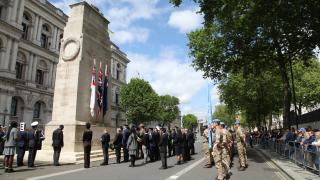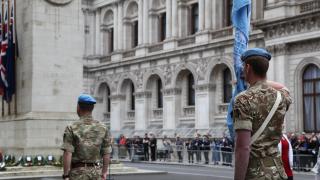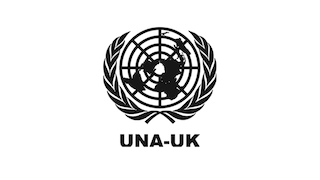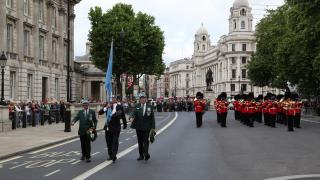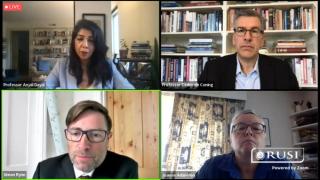The House of Commons International Development Committee recently published its report into “Sexual exploitation and abuse in the aid sector” and UN peacekeeping. At 2230 on 1 August Channel 4 will air a documentary on sexual abuse by UN peacekeepers and staff.
The report was damning with respect to the response of the aid sector to the issue, and the outrage it expressed at the lack of action is legitimate. While noting progress made at the UN on tackling sexual exploitation and abuse (SEA), it also highlighted the serious gaps that remain, particularly in terms of accountability. However, as UNA-UK said at the time, and as the documentary will hopefully make clear, there are limits on what the UN can do in that respect, as uniformed personnel remain under the jurisdiction of their governments. The UN can refuse and repatriate troops - and we believe this should be done more often - but it cannot prosecute them.
UNA-UK welcomed the Committee's inquiry and made written and oral submissions (summarised here), drawing on our Mission Justice campaign on sexual violence in UN peacekeeping.
While SEA is abhorrent in all forms, we are particularly focussed on acts committed by uniformed personnel and on acts of sexual violence. SEA is a term that covers a broad range of conduct from the criminal to the professionally inappropriate. Sexual violence is conduct that constitutes a crime in international law, and where there is a strong consensus that it should always be treated as criminal, and not as a disciplinary offence. If uniformed personnel commit such acts, their home country must be willing and able to prosecute them for it.
As the UK takes up its presidency of the UN Security Council, we have written to Ambassador Karen Pierce outlining measures that support greater accountability, including:
- for the UK to consider the proposal of the Mission Justice campaign: that the Security Council take action to ensure that troops cannot be deployed unless contributing states have demonstrated a willingness and ability to prosecute them if they commit criminal acts. We also highlighted the proposals for doing so contained in our two page policy platform
- for the UK to push for better monitoring in the interim - by requesting the UN to separately track criminal acts of sexual violence from wider issues of exploitation and abuse
- for the UK to offer funding, or help to raise funding, to extend the successful pilot programme for "enhanced vetting" led by the Office of the High Commissioner for Human Rights in the case of the Sri Lankan deployment to Mali
- In the absence of such enhanced vetting, for the UK to push for troop contributors – particularly those who have signed the Secretary-General's "voluntary compact" - to publish the names and photographs of officers to be deployed on peacekeeping missions to allow civil society to conduct their own vetting processes
These steps should have the effect of supporting a criminal justice first approach to the problem of sexual violence, and placing the spotlight on the member states that alone have the ability to effect meaningful change. We also hope it will move the debate in the direction of the development of mechanisms to prevent the deployment of peacekeepers who believe that they have impunity for criminal acts including sexual crimes.
With respect to the report of the House of Commons International Development Committee, we were pleased to see the committee make extensive use of our evidence, particularly when it came to the nature of sexual exploitation and abuse, accountability measures and sectoral regulation and oversight.
“UNA-UK explained that whilst peacekeepers can be prosecuted by their home country, they have immunity from prosecution by the host country. If their home country do not exercise extraterritorial jurisdiction, or if certain acts of sexual abuse are not recognised as a crime, then even the home country will not be able to prosecute.”
We were also pleased to see the Committee support an idea that we and many other civil society groups have championed, that of appointing an independent ombudsperson with a mandate to review and oversee UN actions on sexual exploitation and abuse across all aspects of the United Nations. The Committee's focus on the needs of victims, and on the nature and consequences of abuse was also welcome. We would agree with the Committee's remarks regarding the weakness of coordination mechanisms across UN trusts and agencies. We are grateful for the support for the approach of our Mission Justice campaign contained in paragraph 175
It is imperative that all [SEA] cases referred to Member states are thoroughly investigated and brought to trial where there is a case, and that the outcome of this judicial process is communicated back to the initial complainant. The UK must lead the way and use its influence within the donor working group to ensure that other Member States do the same
In addition, the report referenced an allegation against UK personnel taking part in the UN Mission in Sierra Leone (UNAMSIL) who “were alleged to have been involved in sexually exploitative relationships with refugee/displaced children in Freetown.” According to the report, no inquiry was made by the Royal Military Police as a result of the initial allegation. This is a serious issue that we hope to see the Government comprehensively address in its response; the ability of the UK to insist that other member states hold their troops to account will be severely compromised if the UK does not follow best practice itself.
Nonetheless, we believe that there is a gap between the rightful outrage expressed by the Committee, and the solutions proposed, which we do not feel are in proportion to the scale or seriousness of the issue. We also hope that the Committee will follow up on this work by investigating in more detail what concrete actions could be taken and which actors are best placed to take them forward. For example, we echo the Committee's call for the UK's Department for International Development to show sustained leadership on this issue, and hope that more thought will be given to what leadership entails. Safeguarding is a sensible and overdue first priority, but it needs to be complemented by action - domestically and internationally - to strengthen investgiation and prosecution of criminal acts. Even the most comprehensive safeguarding system will not prevent incidents of SEA. Accountabilty is a crucial element of prevention and deterrence.
Overall, the Committee's report makes an important contribution to raising the profile and broadening thinking of the issue of SEA which is, as the Committee states, "at its core, an abuse of power". As we noted in our evidence, SEA is not limited to the humanitarian aid sector or to the UN but exists wherever power imbalances and impunity are to be found. In that regard, it is important to recognise the crucial role that the UN and aid sector play in bringing about a more equitable world in which sexual exploitation and abuse is less prevalent.
There is a real risk that, in seeking to tackle SEA, the valuable work of these organisations will be forgotten, less supported, or impeded in ways that may not actually have the intended outcome. There is also a risk that the SEA agenda could be instrumentalised by actors seeking to undermine the humanitarian sector and its objectives. It was positive to see the Committee acknowledge some aspects of this, for example, that organisations need to be resourced if they are to take the necessary steps on safeguarding. This is important given the pressures that UN bodies and aid groups are under to spend as little money as possible on what is seen as 'red tape'.
Going forward, UNA-UK hopes that the Committee will place emphasis on these issues, and ensure that it is as unequivocal in its support for organisations contributing to the eradication of SEA and the inequality from which it stems, as it is in its condemnation of their shortcomings.
Photo: MONUSCO helicopter Credit: Carver/UNA-UK

